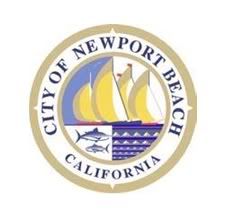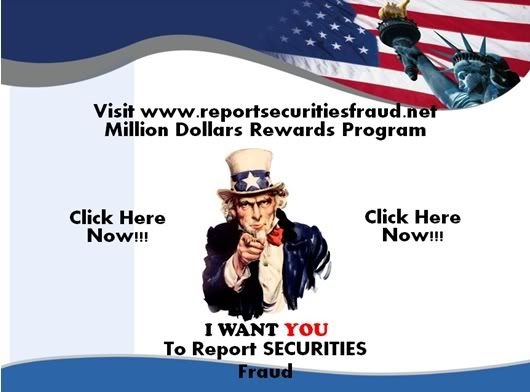ALBUQUERQUE—Douglas F. Vaughan, 64, of Albuquerque, pled guilty to wire and mail fraud charges that involved his operation of a Ponzi scheme in which he fraudulently obtained more than $74 million from approximately 600 investors who were promised extraordinary returns, announced U.S. Attorney Kenneth J. Gonzales. Carol K.O. Lee, Special Agent in Charge of the Albuquerque Division of the FBI, and Daniel S. Tanaka, Director of the New Mexico Regulation and Licensing Department’s Securities Division, joined the U.S. Attorney in making the announcement.
Vaughan entered guilty pleas to count one and four of a 30-count indictment charging him with wire fraud and mail fraud, respectively, before Chief Judge Bruce D. Black in federal court in Santa Fe, N.M., this afternoon. Under the terms of his plea agreement, Vaughan will be sentenced to a term of imprisonment between 10 and 12 years. Chief Judge Black will determine Vaughan’s specific sentence within that range, with Vaughan retaining the right to request a sentence at the lowest end of the range and the U.S. Attorney’s Office retaining the right to request a sentence at the highest end.
Vaughan also faces up to five years of supervised release following imprisonment, a fine of up to $250,000, or twice the gross gain or gross loss resulting from his offenses, whichever is greater, as well as any restitution ordered by the court. The plea agreement also requires that Vaughan immediately forfeit to the United States previously seized funds in the amount of $38,298.24 and real property located in Spring Valley, Nevada, and that Vaughan agree to the imposition of a money judgment against him in the amount of $74,745,723.93, which represents a portion of the gross proceeds that he derived from the offenses charged in the indictment.
The plea agreement also requires that Vaughan resolve two other pending cases: a civil case filed against Vaughan by the Securities and Exchange Commission (SEC) in federal court, and a bankruptcy case initiated by Vaughan in federal bankruptcy court. In the SEC case, Vaughan will consent to the entry of a judgment that permanently enjoins him from violating the federal securities laws. Vaughan also is required to consent to an order by the SEC in an administrative proceeding that bars him from associating with any broker, dealer or investment advisor, and from participating in any stock offerings. In the bankruptcy case, Vaughan is required to enter into a stipulated judgment that denies him a discharge from bankruptcy.
Under the terms of the plea agreement, the U.S. Attorney’s Office will move to dismiss the remaining 28 counts of the indictment after sentence has been imposed on Vaughan. Vaughan remains on conditions of release under pretrial supervision pending his sentencing hearing, which has yet to be scheduled.
Vaughan was charged on February 24, 2011, in an indictment alleging that, between 2005 and 2010, Vaughan operated a promissory note investment program, which he marketed as a means of generating revenue to grow his real estate business, as a Ponzi scheme. It alleged that Vaughan owed more than $74 million in unpaid principal and interest payments to approximately 600 investors when the fraudulent scheme collapsed in early 2010. Vaughan’s plea agreement includes a 16-page addendum.
According to the addendum, Vaughan was the chairman, chief executive officer, president and majority shareholder of Vaughan Company, Realtors (VCR), a business that operated primarily as a residential real estate brokerage and was at one time the largest independent residential brokerage in New Mexico. In 1993, Vaughan began an investment program in which he accepted money on behalf of VCR in exchange for interest-bearing promissory notes. The typical note had a three-year term, an interest rate ranging from 8 percent to 40 percent per year, and provided for interest to be paid in monthly installments. At the end of the note’s term, Vaughan either paid off the principal or offered the investor the opportunity to “roll over” the principal into a new note. Vaughan signed each promissory note on behalf of VCR.
Vaughan led investors to believe that their investments in the promissory note program were actually or virtually risk-free because they were guaranteed by VCR, Vaughan’s personal guarantee, and a $2.5 million deed of trust on certain real estate. Vaughan marketed his promissory note program by representing that the invested funds would be used to purchase real estate and to acquire smaller real estate companies. Instead, Vaughan used the promissory note program funds primarily for three undisclosed purposes: (i) to pay the interest and principal on promissory notes taken out by earlier investors; (ii) to pay himself, under the guise of salary, bonuses, or some other personal transfers; and (iii) to subsidize the operation of VCR, which was generating insufficient “legitimate” revenues to sustain itself.
The addendum states that, by 2005, the promissory note program was an important source of funding for VCR and, without the infusion of capital generated by new promissory note program investors, VCR was insolvent. Despite this, Vaughan continued to distribute the same marketing materials for the promissory note program, sign the same promissory notes, and make the same corporate and personal guarantees. Although Vaughan represented to investors that he would not extend more than $2,500,000.00 in promissory notes, end-of-year financial records reflect that the aggregate principal balance owed to note holders far exceeded this amount:
2004—$24,351,605.00;
2005—$32,299,363.37;
2006—$39,969,110.68;
2007—$49,984,845.80;
2008—$62,844,445.57; and
2009—$74,386,623.38.
From at least 2005 through February 2010, Vaughan used funds from new promissory note program investors to make interest payments to existing note holders and thus lulled existing investors into believing that they were being paid returns from VCR’s legitimate business revenues. However, VCR’s corporate tax returns reflected the following annual losses:
2004—$4,041,048.00;
2005—$5,595,285.00;
2006—$7,461,409.00;
2007—$9,913,893.00;
2008—$13,313,323.00; and
2009—$13,907,738.00.
In announcing Vaughan’s guilty plea, U.S. Attorney Gonzales said, “Today Doug Vaughan stood up in court and admitted that he deceived hundreds of investors into handing over tens of millions of dollars with promises of guaranteed high rates of return and the safety of their investments. Instead, people who trusted Vaughan ended up losing a lot of money, in some cases, their life savings. The United States’ plea agreement with Doug Vaughan brings about a fair and certain resolution of this case. The 10- to 12-year federal prison sentence included in the plea agreement holds Vaughan accountable for the massive Ponzi scheme in which he defrauded hundreds of investors, and is a very significant sentence in a financial fraud case. It is an appropriate resolution for the victims of Doug Vaughan’s crimes who have suffered financially and emotionally as a result of Vaughan’s scam and for the United States’ ensuing efforts to bring Vaughan to justice. Today’s guilty plea helps bring finality to what could have been a protracted criminal case. Although the victims of Vaughan’s crimes will not be compensated for their financial loss, I hope they will find a measure of solace and closure in knowing that Vaughan will be held accountable for his actions by spending substantially the rest of his productive life behind bars.”
************************************************************************
Report Securities Fraud by Calling 1-888-482-6825 or by visiting
www.reportsecuritiesfraud.net
















No comments:
Post a Comment